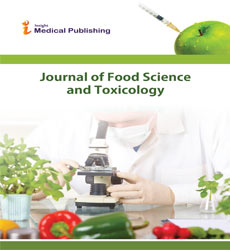Short-term consequences of oral protein powder feeding in premature infants
Abstract
Background: The role of protein supplementation in improving preterm infant weight gain has been almost established, however, no specific instructions have yet been defined as to how much protein supplement should be added to the intestinal nutrition program of premature infants. In this study, in order to improve the quality, we reviewed the results of the in-ward protocol for administering oral protein powder based on the manufacturer's recommendation.
Material &Methods: This retrospective and case-control study was performed from April2017 – March2020 on preterm infants weighing less than 1200 gr who were admitted to the neonatal intensive care unit of Rohani hospital, Babol, IRAN. Infants receiving oral protein powder with a daily dose of one-gram sachet (made by the Dutch company Nutricia) in the expressed breast milk are included in the case group, and the control group was easily and accessibly selected from the records of infants at the same time period who had received the same care other than receiving oral protein powder. Protein powder was started when milk volume reached to 70 ml / kg / day. The mean weight gains at 5, 10 and 15 days after protein onset in the case group was compared with the same time in the control group. The duration of hospitalization after milk volume of 70 ml / kg / day and suspected or definite symptoms of necrotizing enterocolitis were compared in the two groups.
Results: In this study, 102 premature infants, including a case group of 34 and a group of 68, were evaluated as controls. There was no statistically significant difference between the two groups in terms of demographic information. The mean weight gain in the first five days in the case group was 46.16% higher than the control group and for the first ten days was 13.16% higher but was not statistically significant (P> 0.05). The mean weight gain in the first 15 days in the case and control groups was 209.35 ± 115.58 and 169.85 ± 68.9 g, respectively. The case group showed 23.25% weight gain compared to the control group (P = 0.033). The duration of hospitalization in case and control groups was 35.93 ± 10.25 and 41.08 ± 11.32 days, respectively (P = 0.039). Necrotizing enterocolitis, vomiting and oral intolerance were not observed in any of the neonates fed the protein powder supplement.
Conclusion: According to the findings of this study, a diet enriched with protein before the full enteral feeding can increase weight gain and also reduce the length of hospital stay of very low birth weight infants.
Keywords: Very low birth weight infants, Oral protein, Protein fortified milk, Infant nutrition and growth.
Open Access Journals
- Aquaculture & Veterinary Science
- Chemistry & Chemical Sciences
- Clinical Sciences
- Engineering
- General Science
- Genetics & Molecular Biology
- Health Care & Nursing
- Immunology & Microbiology
- Materials Science
- Mathematics & Physics
- Medical Sciences
- Neurology & Psychiatry
- Oncology & Cancer Science
- Pharmaceutical Sciences
